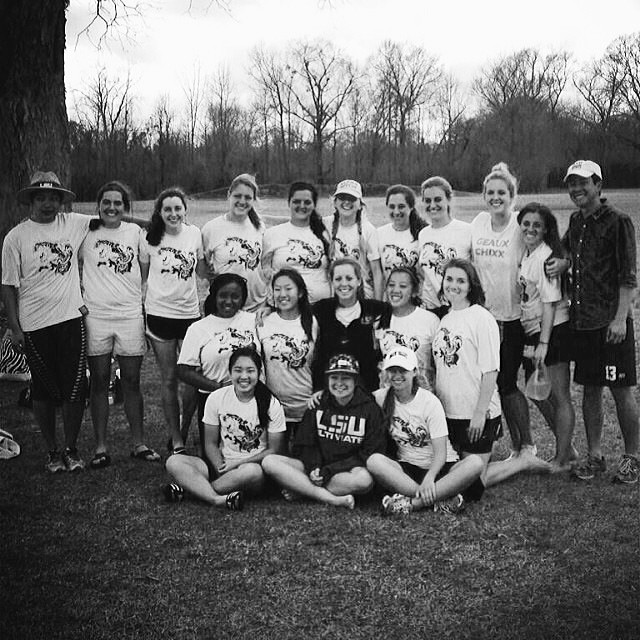I spent a year coaching women’s ultimate at LSU. Here are my thoughts.
Teaching vs coaching
At the end of this year’s NCAA Mens Basketball Regular season, commentator spoke about Kentucky coach John Calipari finally being able to ‘coach strategy’. The commentator explained that up until a month ago, Calipari was just ‘coaching hustle’.
The idea of foundational learning is really important to me, and coming from playing and coaching men’s ultimate, I noticed the male athletes having more of an athletic foundation than the women on my team. While, many women on the team have played team sports where they ran, caught, and threw, we (coaches/captains) had to spend a little more time building an all-around athletic foundation.
At LSU, we used parallel training system: One part focused on ultimate skills and the other on athletic training. Ultimate skills were based on the sport-specific tasks: throwing fundamentals, catching, field awareness, etc. Athletic training was centered on developing strength (weights), force-transfer (sprinting, jumping), and agility.
This approach set our team up for mid-season peak point: around the team when the athletic training allowed the women to physically accomplish their ultimate training goals.
Ideas on thought effort, focus, and philosophy
Throughout the 2013-2014 year, I noticed coaching philosophies that would benefit the LSU Women’s ultimate team. (I will list the coaches with their philosophies at the end of this post, as some people may be terms for various/irrational reasons.) For whatever reason you may dislike a coach, some of their sentiments are undeniable. Some of my efforts as a coach (though they may defy my overall teaching philosophy) were at times subliminal. Below are some others coaches sentiments that I tried to espouse.
“Mediocre people don’t like high achievers and high achievers don’t like mediocre people.”
This idea, to me, rings true. Based on their results, High Achievers have outdone someone mediocre. Achievers will want to be around other achievers and the mediocre will be left in their dust.
At some level, a spiteful backlash from the mediocre manifests through DGAF, ‘Try Hard’, and ‘Gratuitous!’ attitudes. And in my opinion, the strains of ‘You can not teach ____’ come from those who have not tried and ultimately not achieved.
For a team to be high-achieving, it needs to separate itself from degrading effort and achievement.
One of the biggest factors that leads to achievement is effort, which leads into my second quote:
“Effort, focus, and unselfish play — these are things we need on a team”
This quote speaks for itself. The first two are fundamental to having an efficient team practice. The first two are easily lost and regained and their results are immediate. Unselfish play is a something than needs to be practiced over and over– its results are slowly developed but infectious.
There will always be players who are better than others, but as ultimate is a team sport, the Miranda Roth’s, Beau Kittridge’s, and Tyler Degirolamo’s would not be nearly as good without their teammates. Their personal accolades were built on personal efforts and focus, but not without their teammates.
“Next Play”
This is a mental cue to help athletes forget previous failures and focus on the play at hand. Rather than dwelling on something in the past, it’s an optimistic approach to future positive plays.
